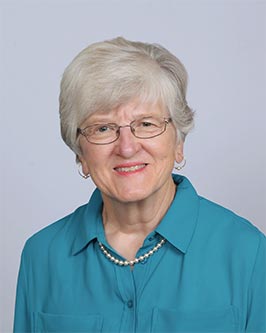Human Development and Family Studies professor honored with prestigious humanities and social sciences award
Shelley MacDermid Wadsworth, professor of Human Development and Family Studies, is the recipient of the 2019 Lu Ann Aday Award—the most prestigious award given by Purdue University in humanities and social sciences.
The Lu Ann Aday Award consists of a monetary prize of $4,000 plus an additional contribution of $7,000 to support the research of the recipient.

MadDermid Wadsworth, who is also the director of the Military Family Research Institute, joined the Purdue faculty in 1989 after completing her MBA, MS, and PhD in human development and family studies at Penn State University.
Her research focuses on links between work conditions and family life, with a special focus on military families. MacDermid Wadsworth has received grants from the National Institutes of Health, the departments of Defense, Veterans Affairs and Agriculture, state governments, and numerous private philanthropies. She has served on federal advisory committees for the National Academy of Medicine and the Department of Defense, and has testified in Congress on multiple occasions regarding military and veteran families.
MacDermid Wadsworth has authored and co-authored over 100 articles, 37 book chapters, and made over 300 conference presentations nationally and internationally, including many invited, keynote, and plenary presentations.
At Purdue, MacDermid Wadsworth has been recognized with the Violet Haas, Women in Leadership, Faculty Engagement Fellow, and the Morrill Awards. Nationally, she is a fellow of the National Council on Family Relations, which recently recognized her with the Felix Berardo Scholarship award for mentoring. The Military Family Research Institute earned the Kellogg Award from the Association of Public and Land Grant Universities, the Higher Education Civic Engagement Award from the Washington Center, and the Laura A. Wheeler Behavioral Health Champion Award from the U.S. Army National Guard.
MacDermid Wadsworth presented Military Families: at the intersection of science and service during the 2019 Distinguished Research Lecture Series. An abstract follows:
Military Families: at the intersection of science and service
The events of Sept. 11, 2001, propelled the U.S. into the longest armed conflict in its history. Over 2.7 million service members, most with family responsibilities, have deployed overseas since then. This new generation of combat‐exposed veterans presents scientists with both opportunities and challenges. In her lecture, Dr. MacDermid Wadsworth will consider three questions:
Why should scholars consider families in their research?
What is the scientific importance of military families, and what can they teach us?
How should scientists respond to times of war, and how can they maximize their impact?
About Lu Ann Aday
Purdue University alumna Lu Ann Aday, the Lorne D. Bain Distinguished Professor Emerita in Public Health and Medicine at the University of Texas School of Public Health-Houston, has endowed Purdue’s most prestigious research award in the humanities and social sciences.
Aday came to Purdue for a master’s and a doctoral degree in sociology after receiving a bachelor’s degree in agricultural economics from Texas Tech University in 1968. In 2004, Purdue conferred an honorary doctorate of social sciences to Aday.

Aday was formerly associate director for research at the Center for Health Administration Studies of the University of Chicago. She has conducted major national and community surveys and evaluations of national demonstrations and published extensively on public health, including authoring 16 books dealing with conceptual or empirical aspects of research on access to health and health care for vulnerable populations.
Discover more from News | College of Health and Human Sciences
Subscribe to get the latest posts sent to your email.